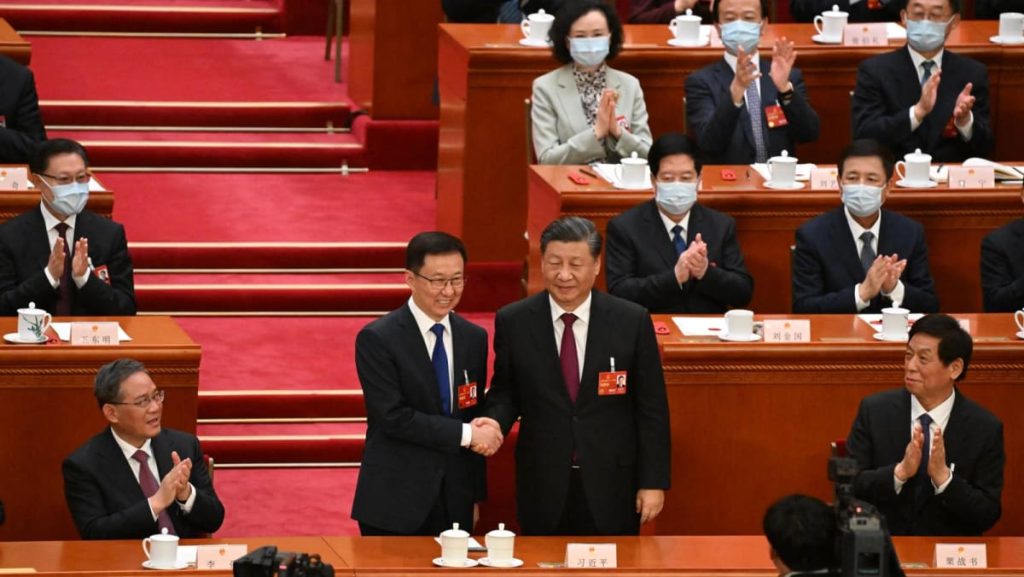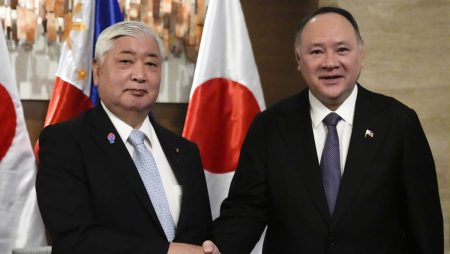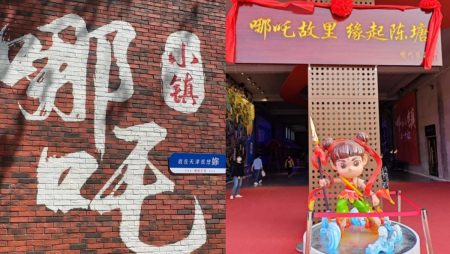The selection of Han Zheng as China’s representative to Donald Trump’s inauguration in 2017 was a carefully calculated move by Beijing, balancing the need to meet US expectations for a high-ranking official with a strategic desire to avoid exposing key figures to potential political fallout. Han’s position as Vice President offered a convenient “middle ground.” He held a sufficiently senior title to satisfy protocol, yet lacked the substantial political influence that would make him a significant loss if the nascent US-China relationship deteriorated under the Trump administration. This approach allowed China to extend a diplomatic gesture without overcommitting or risking embarrassment if the political climate soured.
Han’s selection underscores the delicate tightrope Beijing often walks in its diplomatic endeavors. Sending a close confidante of Xi Jinping, such as Cai Qi, would have signaled deeper commitment but also exposed a crucial figure to potential targeting by foreign powers seeking to undermine Xi. History suggests that such high-profile envoys can become pawns in international political games, used to embarrass or pressure the Chinese leadership. Moreover, the anticipated anti-China rhetoric and potential executive orders from the incoming Trump administration made the inauguration a potentially hostile environment. Beijing opted for a pragmatic approach, prioritizing damage control and minimizing potential fallout by choosing a representative who could fulfill the ceremonial duties without incurring significant political risk.
Han Zheng’s role was primarily symbolic, reflecting the largely ceremonial nature of the Chinese vice presidency. Similar to his predecessor, Wang Qishan, Han often served as a stand-in for Xi Jinping at international events, fulfilling diplomatic obligations when Xi’s presence was deemed unnecessary or politically risky. The Chinese constitution defines the vice president’s role as assisting the president and carrying out tasks delegated by the president. This framework provided Han with the necessary authority to represent China at the inauguration while simultaneously insulating Xi Jinping from potential negative consequences associated with the uncertain political landscape of the early Trump administration.
The decision to send Han Zheng also highlights the strategic considerations behind personnel choices in Chinese diplomacy. Alternatives like Cai Qi, a member of the powerful Politburo Standing Committee and Xi’s chief of staff, held significantly more influence within the Chinese political system. Sending such a high-ranking official would have conveyed a stronger message of engagement but also exposed a key figure to potential risks. Similarly, Foreign Minister Wang Yi, a seasoned diplomat frequently representing China on the global stage, might have been a more conventional choice. However, Beijing opted for a less prominent figure, likely anticipating a less predictable and potentially hostile environment in the early days of the Trump presidency.
The choice of Han Zheng over figures like Cai Qi illuminates the multifaceted nature of Chinese political strategy. Cai Qi’s dual role as a Politburo Standing Committee member and Xi’s chief of staff signified his close proximity to the center of power in China. His presence at the inauguration would have been interpreted as a significant gesture, reflecting a high level of commitment from Beijing. However, such a move would have also exposed a key figure in Xi Jinping’s inner circle to potential scrutiny and political maneuvering, a risk the Chinese leadership evidently sought to avoid. This decision reflects a cautious approach, prioritizing the protection of key figures within the Chinese political hierarchy.
In essence, the selection of Han Zheng as China’s representative to Trump’s inauguration was a carefully calibrated diplomatic maneuver. It allowed Beijing to fulfill its diplomatic obligations, sending a sufficiently high-ranking official to meet US expectations, while simultaneously mitigating potential political risks. Han Zheng’s position as vice president provided the ideal balance, conveying a level of respect for the occasion without exposing a crucial political figure to the unpredictable political climate of the incoming Trump administration. This approach underscores the intricate balancing act that characterizes Chinese diplomacy, navigating international relations while safeguarding domestic political interests.










